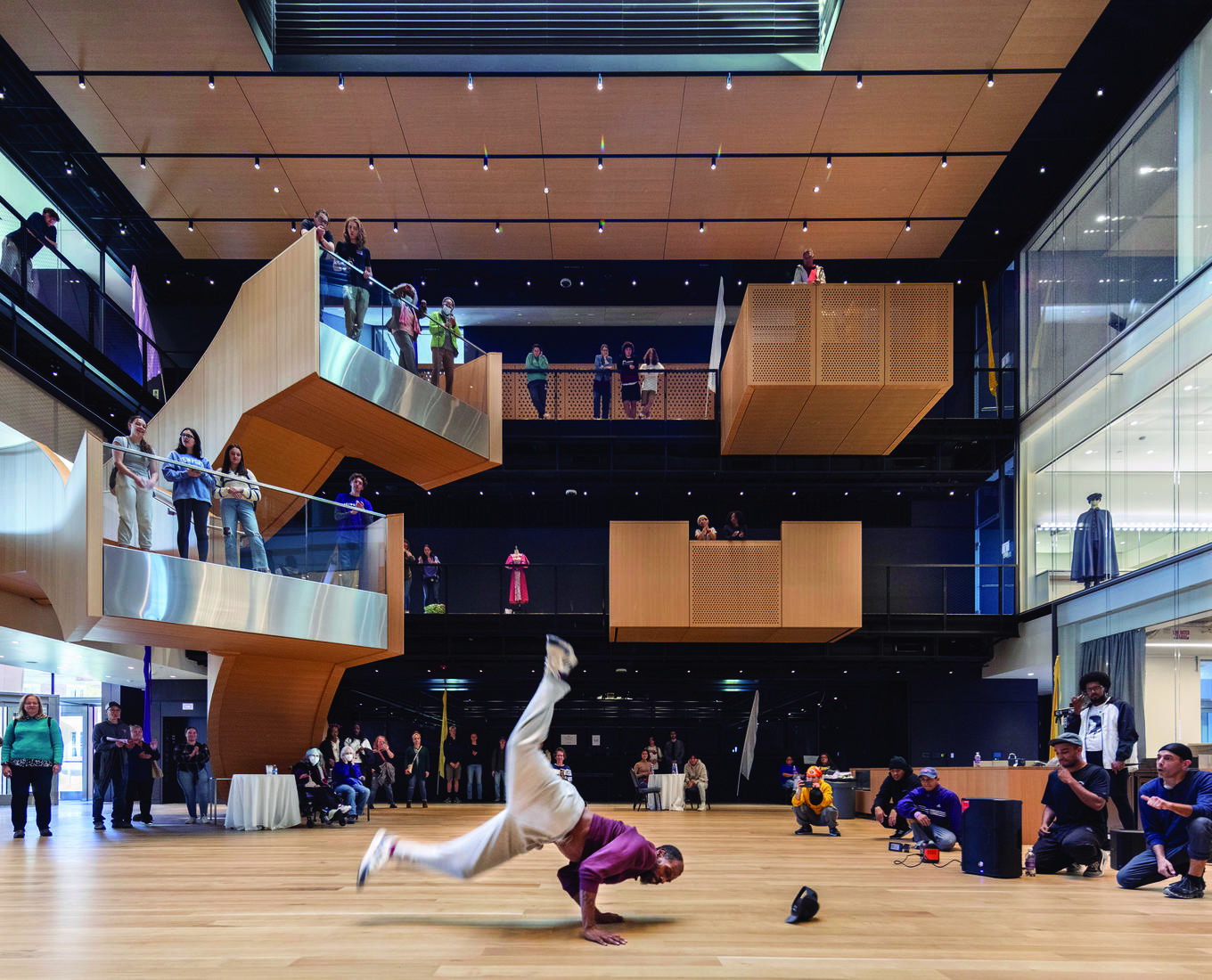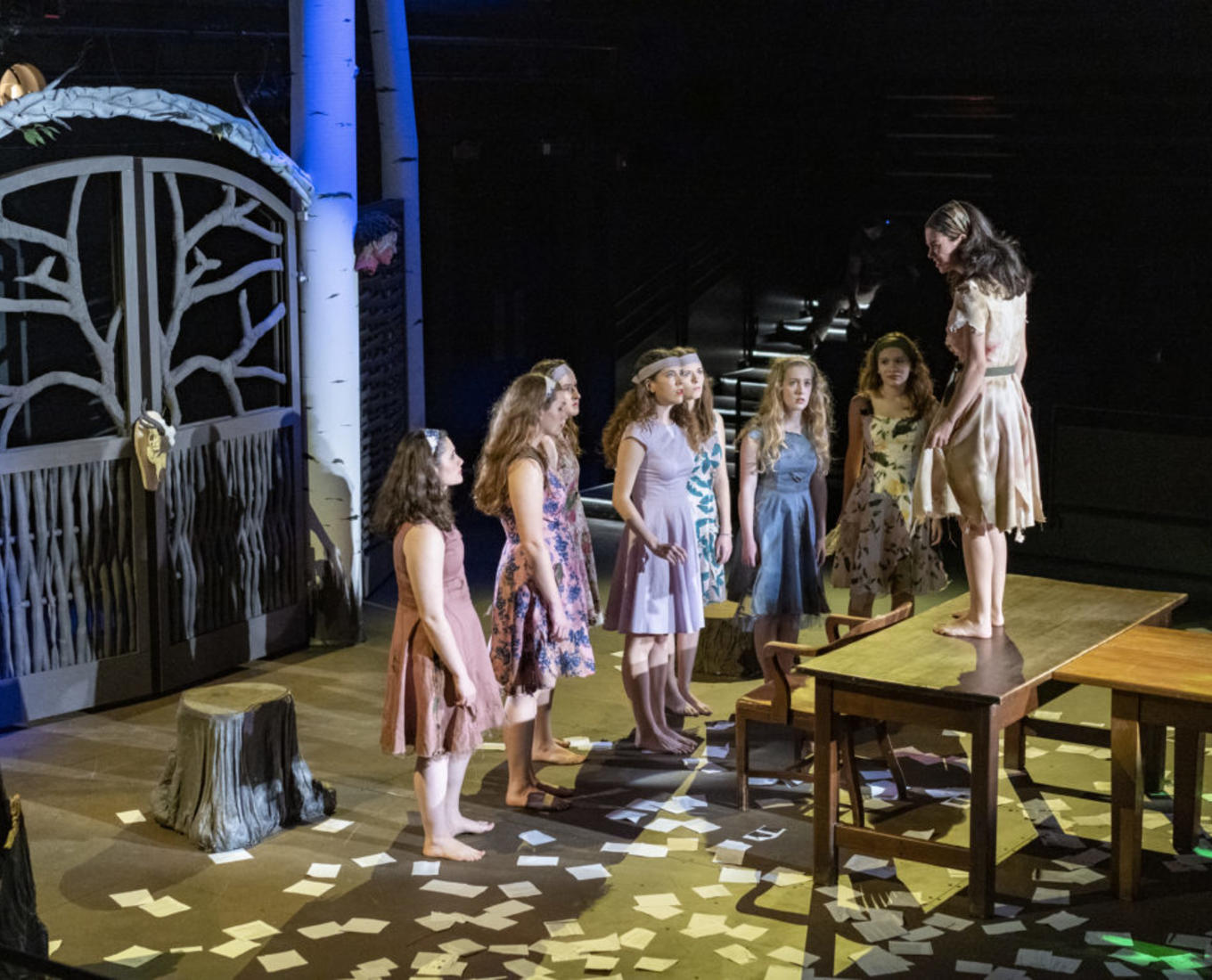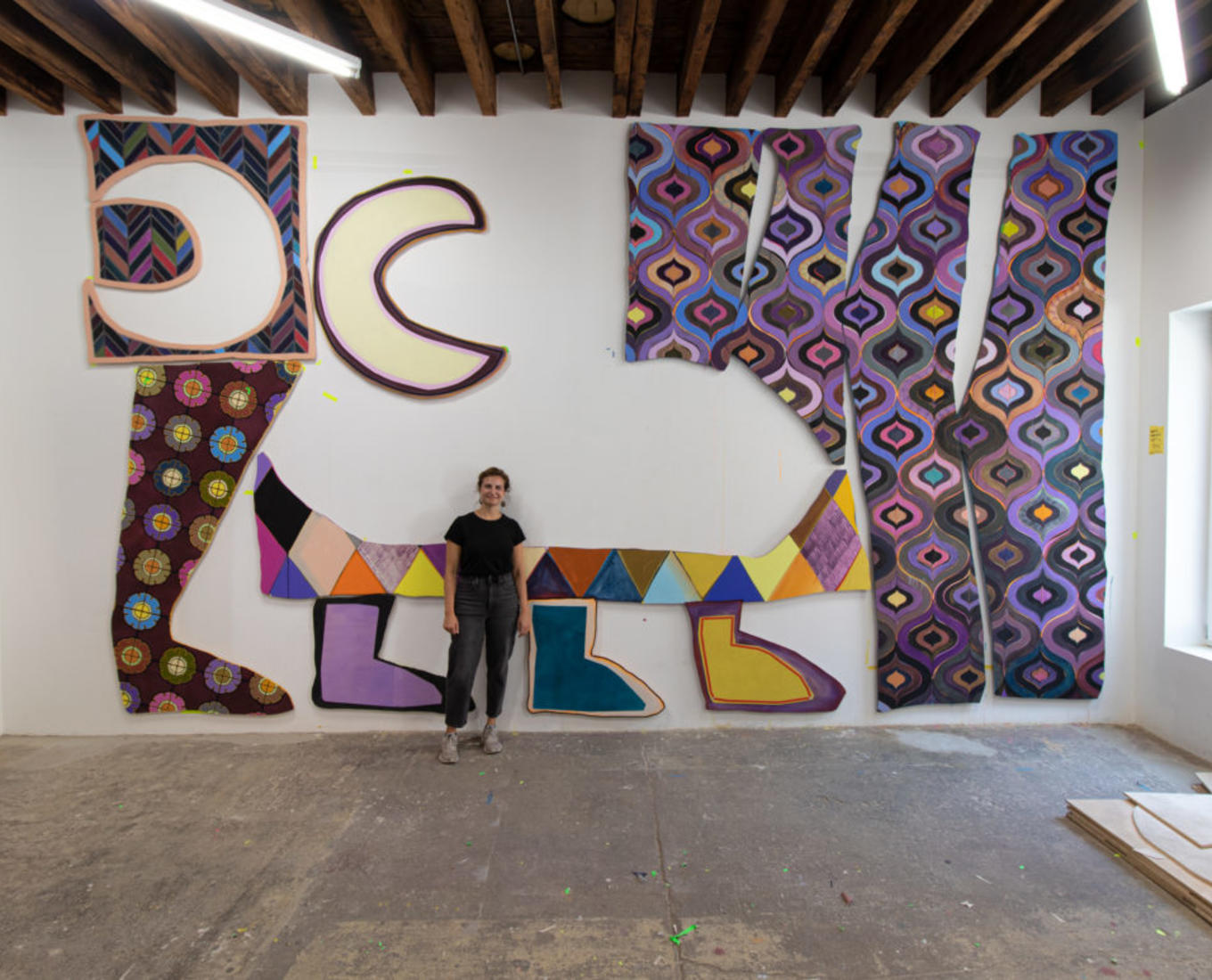Worcester filmmaker Cyrille Vincent had driven the city’s Major Taylor Boulevard countless times, but never considered who it was named for.
“I heard about him — at least my GPS reminded me many times I was on his road downtown,” Vincent said with a laugh. “But I did not know it was referencing an African-American world bicycle champion.”
He discovered that when he spotted a statue of Taylor outside a city library: “That caught my eye.” Curiosity, research and then the idea for a documentary followed — if he didn’t know Taylor’s story, chances were others in Worcester, where Taylor spent much of his legendary life, might not either. To share that biography, however, intrigue would not be enough; Vincent also needed the dedicated time and resources to do so.
Enter Holy Cross and its newest building, the state-of-the-art Prior Performing Arts Center.
Earlier this year, The Prior invited applications and chose two local artists, Vincent and musician Daniel Gay, to be the inaugural recipients of a summer residency, HC x WCC: Creative Residencies for Worcester Artists at The Prior. These grants are the product of a new three-year partnership, funded by Holy Cross’ Scholarship in Action program, between the College, the Worcester Cultural Coalition, and the city’s Cultural Development Division. The partnership will offer rehearsal space, a stipend and dedicated time to work on their craft to several cohorts of Worcester artists as part of the team’s broader research into how campus-based arts centers can support local arts.
Since The Prior’s opening in August 2022, the center has hosted internationally famous artists, served as a daily working classroom and rehearsal space, showcased myriad concerts and performances, and much more. With respect to the local community, “We've brought visiting artists into Worcester Public Schools classrooms and Worcester students to The Prior. What's been missing until now is service to Worcester artists,” said Kyle Frisina, The Prior’s interim director.
Both projects’ needs are unique and speak to each artist’s specific ties to their community, a pillar of the residency that aims to build a firmer bridge between the resources the College can offer and the stories Worcester artists want to tell.
Art and community
In Major Taylor, Vincent found the perfect subject: a cyclist who was a symbol not only for one of the most popular sports of the time, but also a beacon of resilience for Black athletes.
Taylor was born in Indiana, but Jim Crow laws made it difficult to race there. At the advice of his mentor, Birdie Munger, they moved to Worcester at the end of the nineteenth century. His career then flourished, but not without some obstacles.
“People complained, they tried to attack him on the track, some would even not participate because they thought they were better — others were afraid because they knew he would win,” Vincent said.
Even by modern standards, Taylor is considered the greatest American sprinter of all time. Still, his local legacy may not be as touted as it should be, even though he garnered the nickname the Worcester Whirlwind.
Vincent used his residency to work on compiling research and outlining the structure for the script for his documentary, “Whirlwind: The Major Taylor Story.”
“I haven’t really had that much focused time to research and write since I started working on this project because I’m always doing everything at the same time,” including fundraising and marketing, he said.
“I made sure that my schedule is the residency,” he added, reflecting a goal Frisina hopes artists get out of this fresh program.
“For many artists, the opportunity for time and space apart from their distracted lives is rare,” she said, noting that “the focus of these residencies is on development — we are intentionally supporting work in progress. What we're offering is a playground for people to roll up their sleeves, get messy and exist in an experimental state.”
This practice, as Frisina sees it, is exemplary of not only how artists create new work, but of the very notion of the liberal arts. Both, she said, “are about risk, feedback, evolution, discovery. The liberal arts environment is actually the ideal incubator for artistic process. The Prior has a unique opportunity, I'd even call it a responsibility, to contribute this kind of programming to the cultural ecosystem. It's an honor and a total joy.”
Creating the sounds of the city
A sense of play is what appealed to Gay, a Worcester Public Schools teacher, who is composing a seven-part suite highlighting the musical backgrounds of Worcester’s immigrant communities. During his residency, Gay recorded tracks that gestured toward what a final product would one day sound like.
“I’ve taught refugees and newcomers for about 10 years, and I’ve made it my mission to learn some of the music” from those student’s cultures, he noted.
Worcester is a city with a large immigrant population — 23% of its 200,000+ residents were born outside of the U.S. — so Gay’s students and their families come from all over the world.
“What is going to eventually come from this residency is a premiere: a concert featuring seven movements that represent the seven hills of Worcester,” which in turn represent seven distinct communities in the city.
Gay likens his composition to a suite through which he hopes to capture and share “the sounds of the city.”
“For a place that’s 200,000 people and that’s not New York City, it’s important to show Worcester as a special space — it’s a city where the whole world is here,” he said.
At the residency, Gay savored alone time to rehearse and played with a small group using basic instruments that nod toward the ethnically appropriate ones that would be used by his immigrant collaborators in an eventual concert.
As he tinkered, Gay got to do so while enjoying an unexpected benefit the program affords.
“Geographically, there is something about writing a piece of music while looking down at the city from above, a view you can only get from the College,” he said, noting that as he writes, he takes in the vistas and hills that define his musical tapestry. “I value it more than I can say.”


